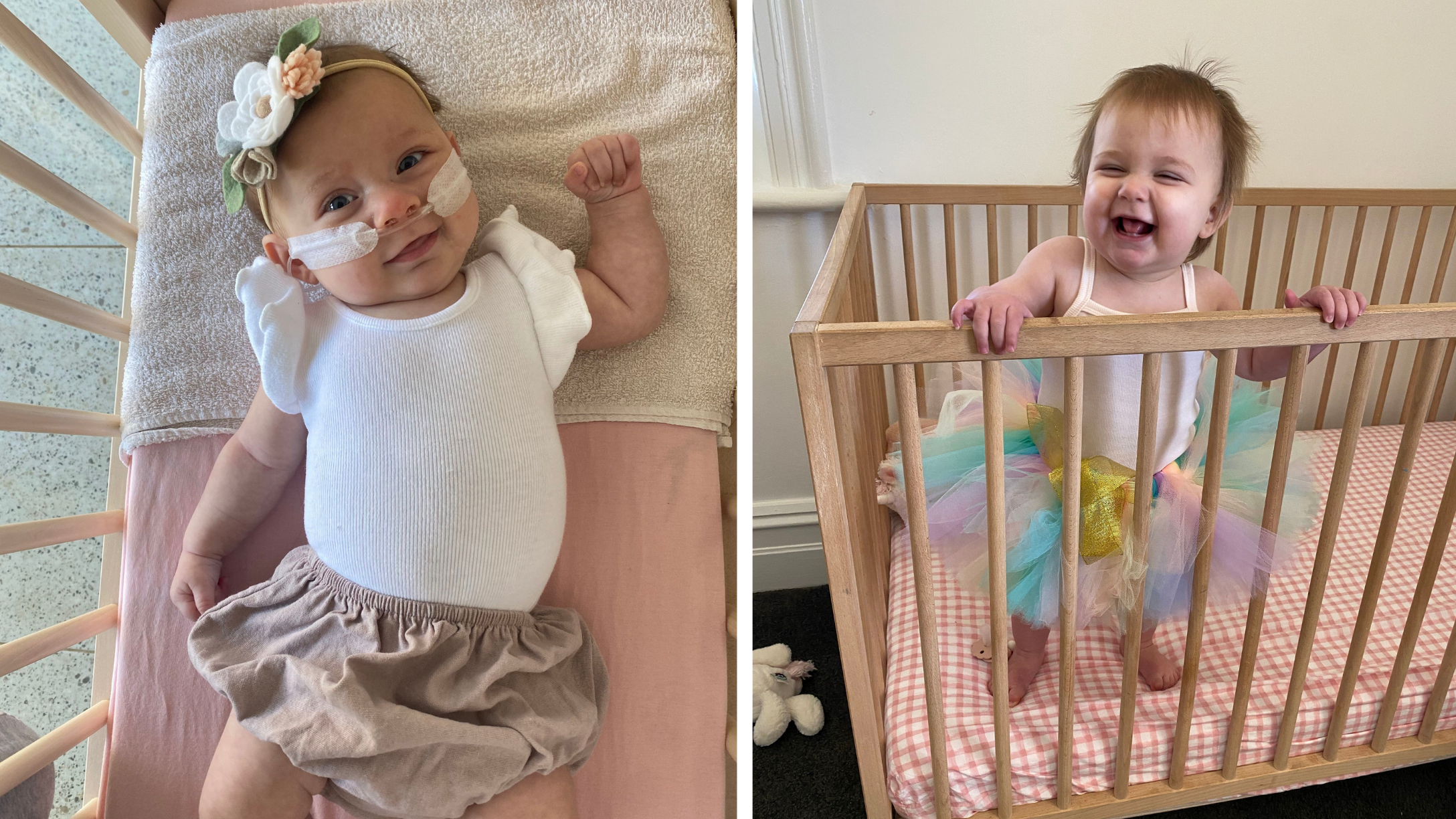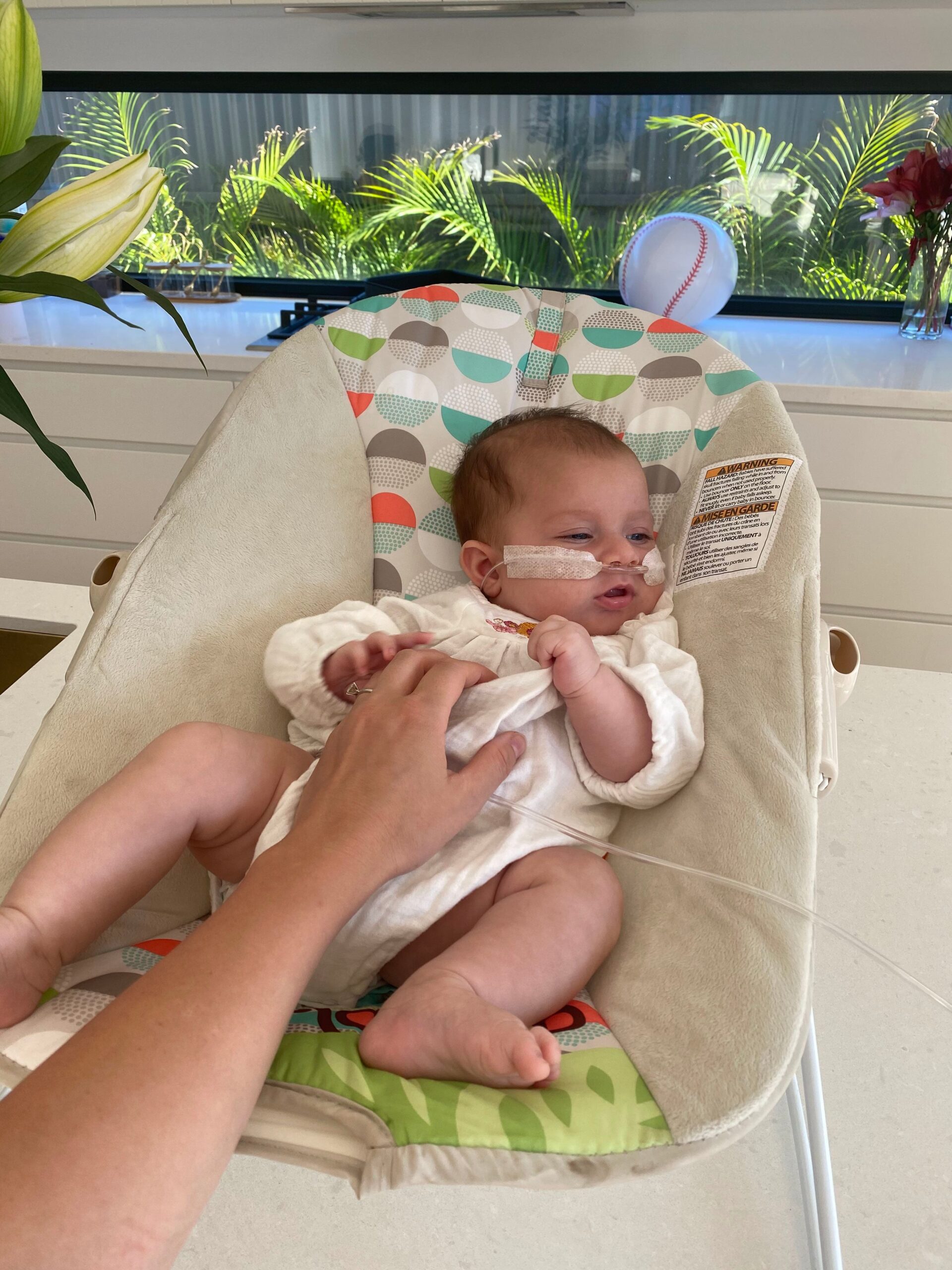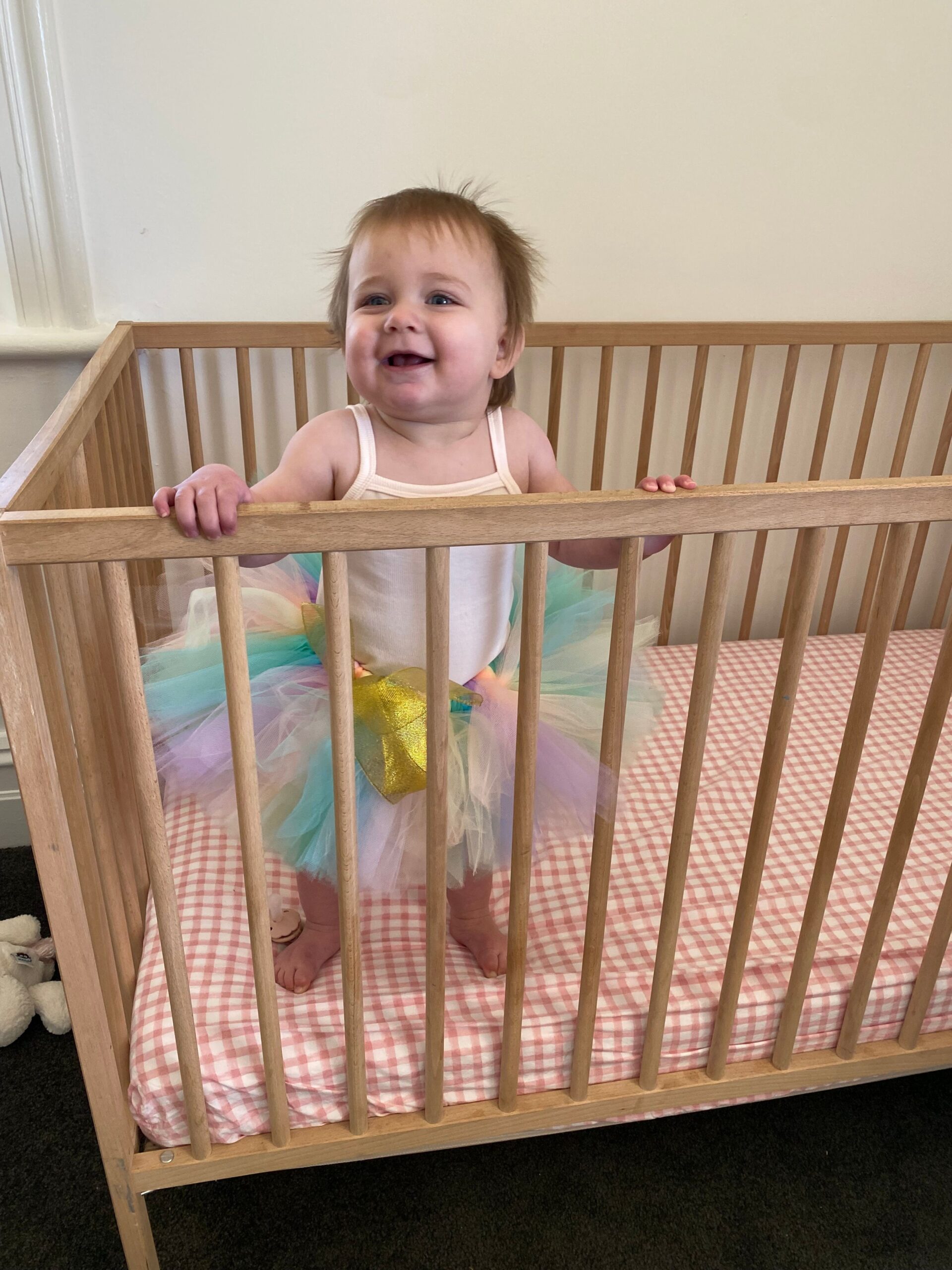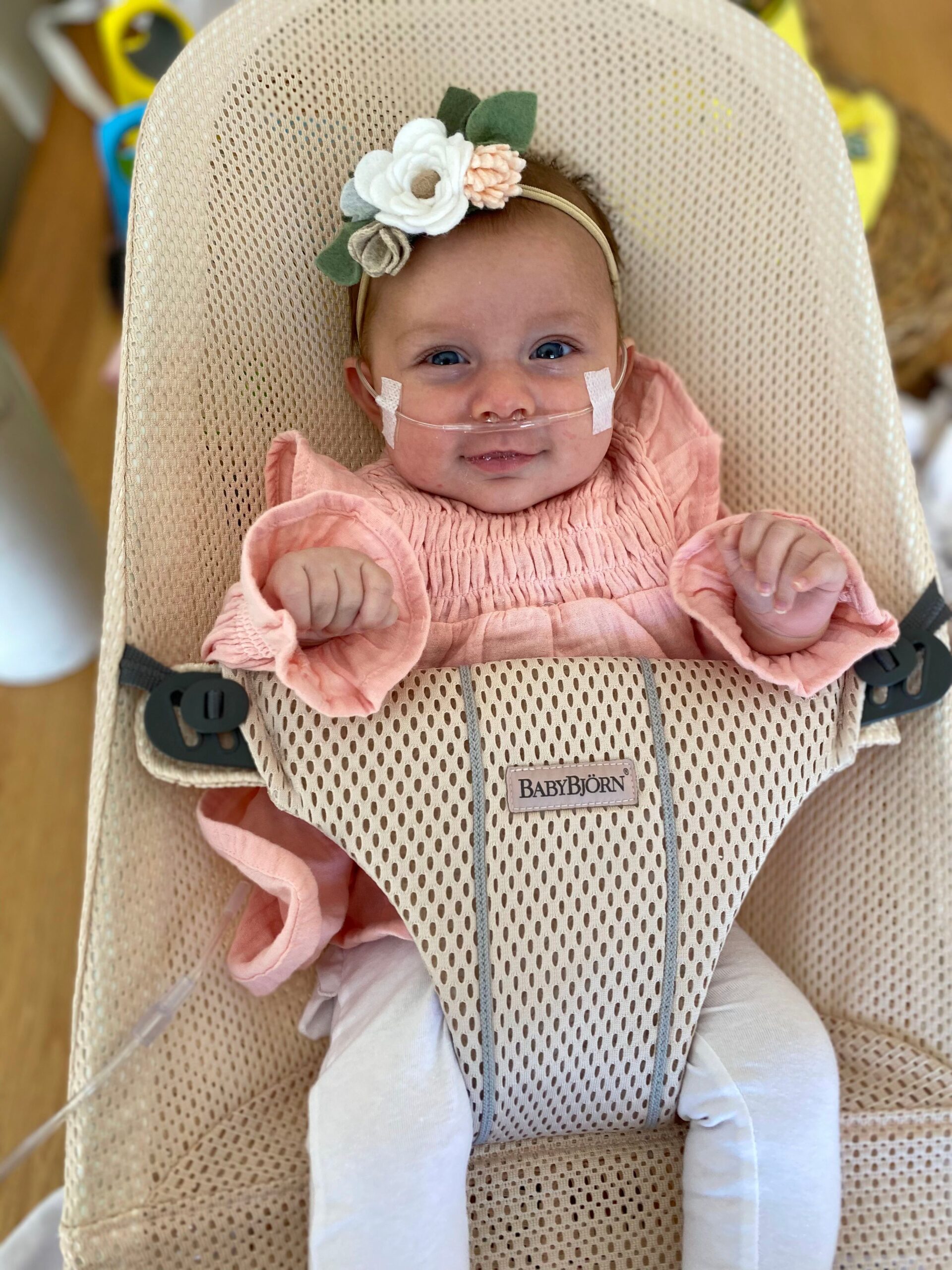
As an e-commerce specialist, Black Friday is always one of the most important days of the year for me. However last year was more frantic than usual. I unexpectedly went into fast, spontaneous labor in the early hours of that morning with my daughter, Charlotte, who decided to
arrive three weeks early at 37 weeks.
I run my own consultancy Olivia Jenkins Consulting advising female-led businesses in the beauty, fashion, and lifestyle spaces and am used to working hard for my clients. I was actually still writing emails on the day, so it was chaotic to say the least.
Because Charlotte was on the early side, I was rushed to hospital to have steroid injections to help her breathe before she was delivered via emergency C-section.

Once Charlotte was born, I had an unsettling feeling that something just wasn't right. I was super worried about her sleeping and she seemed a bit wheezy in the first few days after the birth. The doctors told me it was normal, especially given she was born early via C-section, but things still seemed off.
My husband George and I brought Charlotte home during the first week and I began to establish breastfeeding.
I really had my hands full, as I am also a mom to two boys — Henry, 4, and Archer, 3.
I could see that Charlotte was really struggling with my let down, which was quite powerful, and would often choke and splutter, coming on and off the breast several times.
Around day 12, I was feeding Charlotte from my breast when she began to choke on my breast milk.
Her mouth was completely full of milk and she projectile vomited onto me as I lifted her up to my chest. From there, she kept choking but was making no sounds.
I watched her rapidly change color to the point she turned blue and was unresponsive — it was then that I decided to call for an ambulance in a sheer panic. We had three ambulances at our home within minutes including an intensive care ambulance to help us.
I remember those minutes going past and feeling like they were hours, totally convinced that I was going to lose Charlotte. She was totally limp in my arms — it was a truly horrendous thing to go through.
Once I heard the sirens, I ran out to the road to meet the ambulance and immediately handed paramedics Charlotte.

By then, she had started to come to a bit and was a slightly better color.
They rushed us both to hospital where we were monitored for the night and were allowed home in the morning. The pediatrician at the hospital told me it was a BRUE (a brief resolved unexplained event when an infant younger than one stops breathing) and not to be concerned — that it's quite common and to come in again if I was worried.
From there, I began taking much more care when feeding Charlotte and taking her on and off the breast so the let downs didn't overwhelm her.
After a few days, I still felt worried — her choking had continued off and on during feeding — and my mother’s instinct was screaming "something is wrong."
I called our family pediatrician and begged him for an appointment to see Charlotte that day. He told me to come in right away and he would see her to assess the situation.
After watching her feed, he said that the most likely cause of her choking was a condition called laryngomalacia.

This is when the soft, immature cartilage of the upper larynx collapses inward during inhalation, causing airway obstruction. He handed me a referral to see a respiratory doctor, ENT surgeon, and speech pathologist.
We immediately booked appointments and saw the ENT first. He scoped Charlotte, which involved sending a small camera down into her airways to see what was going on. He confirmed she had laryngomalacia and advised us to start thickening her milk for her own safety to reduce the choking risk. This was something I had never heard of previously, so it was a relief to know there were steps I could take to help Charlotte.
However, I was in for another shock.
Once we met with the respiratory doctor he ordered a hospital-based sleep study which determined Charlotte also has a condition called central sleep apnea, which means her brain doesn't send proper signals to the muscles that control her breathing whether she’s asleep or awake. She also has obstructive sleep apnea, but the CSA condition is more rare. By around 10 weeks Charlotte began using an oxygen tube 24/7.
At the moment, on average Charlotte has three to four episodes per hour where she will stop breathing.

It never gets easier to cope with; it’s always scary. It's essential we keep her on oxygen until she improves, and she is only allowed off her tube for the briefest of periods here and there.
Charlotte now has a sleep test every four months to monitor her progress. Doctors won't let her come off the oxygen permanently until she is progressing to a safe level.
Feeding and settling a baby to sleep is already challenging enough when your child is normal. But when your child has life-threatening issues it’s a whole other level of stress. My husband and I are looking forward to the day, when Charlotte improves and we won’t have to worry quite so much.
This essay was republished with permission and was written by Olivia Jenkins. You can follow her journey on Instagram or on her website.



